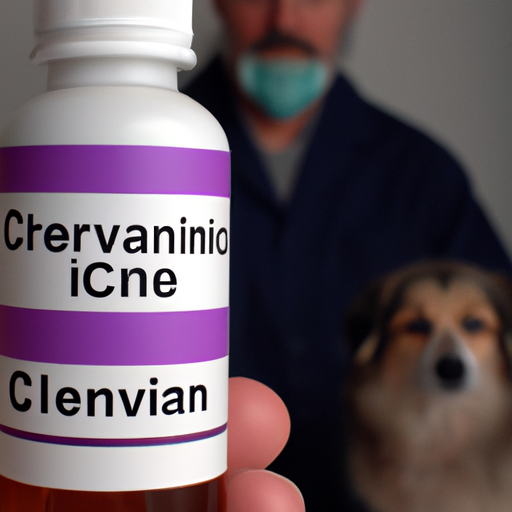As a devoted caregiver, you understand that sometimes, your furry companion may need medical attention. In this comprehensive guide, we’ll explore a commonly prescribed antibiotic for dogs: Clindamycin. We’ll delve into its uses, dosage, side effects, precautions, and frequently asked questions.
What is Clindamycin?
Clindamycin is an antibiotic that belongs to the class of drugs known as lincosamides. It’s specifically designed to combat bacterial infections in dogs and cats. It’s often used to treat dental infections, skin infections, bone infections, and other conditions caused by certain types of bacteria.
How Does Clindamycin Work?
Clindamycin works by inhibiting the growth of bacteria, thus stopping the infection from spreading. It specifically targets the bacteria’s ability to produce proteins, which are necessary for their growth and multiplication. Without these proteins, the bacteria cannot survive, allowing your dog’s immune system to eliminate the infection.
Dosage and Administration
The dosage of Clindamycin for your dog will be determined by your veterinarian and it is crucial to strictly adhere to their directions. However, as a general rule of thumb:
- For dental infections: 5.5 mg/kg every 12 hours
- For skin and soft tissue infections: 5.5-11 mg/kg every 24 hours
- For bone infections: 11 mg/kg every 12 hours
The treatment period typically lasts for 28 days, but it could be longer depending on the severity of the infection.
Remember, it’s essential not to miss a dose, and if you do, give it as soon as possible. If it’s close to the next dose, skip the missed dose and continue with the regular schedule. Avoid giving your dog two doses at once.
Side Effects and Precautions
Like any medication, Clindamycin has potential side effects. These can include:
- Vomiting
- Diarrhea
- Loss of appetite
- Weight loss
In rare cases, dogs may experience severe intestinal problems. If your dog shows signs of severe vomiting, bloody diarrhea, or other unusual behaviors, contact your veterinarian immediately.
Before giving Clindamycin, make sure your vet is aware if your dog:
- Has kidney or liver disease
- Is pregnant or lactating
- Is taking other medication
Frequently Asked Questions
1. Can I give my dog Clindamycin if he is on other medication?
It depends on the medication. Always inform your vet about any other medications your dog is taking. Certain drugs can interact with Clindamycin, potentially causing adverse effects.
2. Is Clindamycin safe for all dogs?
While Clindamycin is generally safe for most dogs, it’s not recommended for puppies under 4 weeks old or dogs with severe kidney or liver disease.
3. What should I do if my dog misses a dose?
If your dog misses a dose, give it as soon as you remember. If it’s close to the next dose, skip the missed dose and continue with the regular schedule. Never give your dog two doses at once.
4. Can humans take Clindamycin?
Yes, but only when prescribed by a doctor. Never take medicine intended for your pet.
5. Can my dog overdose on Clindamycin?
Yes, an overdose is possible and can be serious. If you suspect an overdose, seek veterinary attention immediately.
As a caregiver, it’s your responsibility to ensure your dog’s health. Understanding the medications your dog needs, like Clindamycin, is crucial to providing the best care possible. Always consult with your vet if you have any concerns about your dog’s medication or health.



